Judges
Our judges are from a wide spectrum of movements representing regenerative design, permaculture, food sovereignty, transition, biomimicry and eco-village networks. We aim for a gender mix, and representatives from around the world. Each prize cycle a ‘Lush Customer Judge’ and ‘Lush Staff Judge’ are also selected to act as additional independent members of the judging panel.
Andrew Zionts Abrams
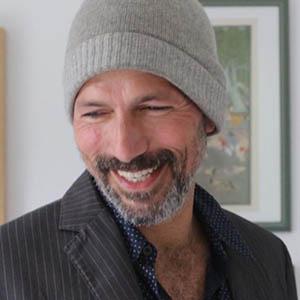
Judge for the Permaculture Magazine Award.
Andrew Zionts Abrams is a Permaculturist, designer, entrepreneur, teacher, facilitator and philanthropist and perhaps most importantly, an earth steward.
Since 2014 Andrew has been a steward of Catalina where he lives on deforested steep slopes in the province of Cádiz, in Andalucia, Spain. Restoring the functionality of the ecosystem, this is a permaculture sanctuary where he’s designed and implemented a zero-runoff water retention landscape and reforestation project.
In 2017 Andrew co-founded Abundant Earth Foundation, with a vision of equitable future care within the international Permaculture community. The foundation aims to pool support for grass-roots permaculture initiatives in places where resources are systemically scarce, and a little input can leverage major impact.
Asad Rehman

Judge for the Spring Prize Awards.
Asad Rehman is the Executive Director of the radical anti-poverty and social justice charity War on Want, that works to achieve a vision of a just world, through their mission to fight against the root causes of poverty, inequality and human rights violations.
Asad is a leading climate justice activist whose work has helped to reframe the climate crisis as a crisis of neoliberal capitalism, inequality and racism, and is co-coordinator of the Global Green New Deal Project.
Over the last 35 years he has worked with many social movements (both globally and nationally), including the anti-racist movement, the alter-globalisation movement, and the anti-war movement.
Dr Georgina McAllister

Judge for the Spring Prize Awards.
Dr Georgina McAllister has worked in the humanitarian and development sectors in Europe, the Middle East, South East Asia, the Pacific and sub-Saharan Africa since the early 1990s.
Co-founding UK NGO GardenAfrica in 2001, she has been co-designing and co-developing social-ecological programmes with civil society organisations and family farmers in sub-Saharan Africa. This work has incorporated a focus on promoting regenerative agroecological farming practices and processes for human and agroecosystem health in politically, socially and ecologically fragile environments.
She has a particular interest in promoting more inclusive forms of community engagement and voice, within which the relationship between people and their environment is central to co-creating more durable and equitable outcomes.
George is an assistant professor in Stabilisation Agriculture at the Centre for Agroecology, Water & Resilience (Coventry University).
Dr. Jeff Su

Judge for the Spring Prize Awards.
Dr. Jeff Su is the Managing Director of nRhythm, a design and management firm that believes organizations are living systems that require a fundamentally different approach to the current mechanistic models.
Jeff has led a diverse and international career as an ecologist, academic, executive director, consultant and psychotherapist in the USA, Australia, Europe, and Africa.
Throughout his career he has applied systems thinking and holistic approaches to help organizations address the most pressing environmental and social issues of our time.
Jeff applies systems thinking to his own life experience and development through a dedicated Buddhist practice. He holds a Ph.D. in Ecology and Environmental Science and a graduate degree in Holistic Psychology.
Emily Kerr-Muir
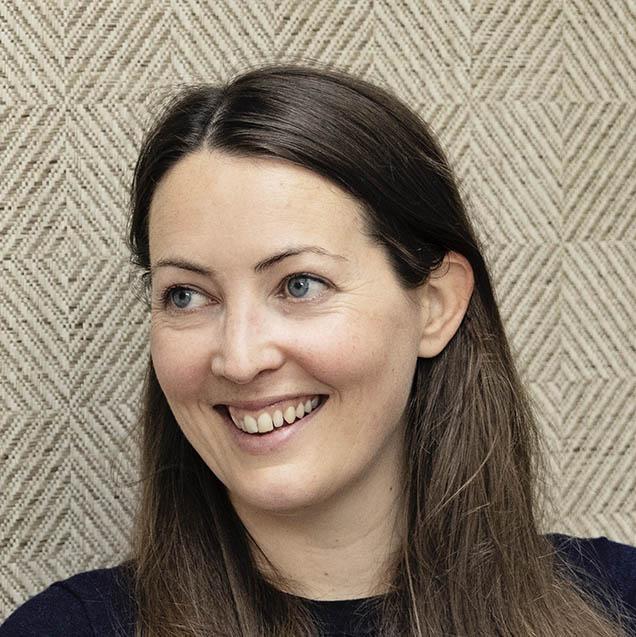
Judge for the Indigenous Knowledge & Wisdom Award.
Emily lives in London where she is the Director of The Savitri Trust – a small family foundation funding global initiatives that improve the health of people and planet.
Emily has played an integral role in the Savitri Trust transitioning to environmental causes within their funding programmes, establishing funding partnerships across many of the most underfunded and critical areas. Emily’s previous experience encompasses campaigning, fundraising and international development.
Whilst her day-to-day role is leading a small team, she enjoys and values being part of collective initiatives that influence and guide her work. These include; participating in a Funders Community of Practice, a funder collective ‘Farming the Future’, the Earth Funding Lab and a number of other pooled grant making initiatives, largely with other family Foundations.
One of the highlights of her role is getting to meet the people who are driving the work and to see how their commitment and vision is impacting their local community and in turn wider positive change; be that youth climate activists, tribal communities in India or investigative journalists in the UK. Passionate about environmental restoration, she is committed to supporting movements that protect and regenerate our planet.
Filipa Pimentel

Judge for the Spring Prize Awards.
Filipa Pimentel works for Transition Network – a small charity which aims to inspire, encourage, connect, support and train communities world-wide as they self-organise around the Transition model.
She is a Portuguese forest scientist by training. After 10 years working in EU Institutions and organisations related to sustainable development, she quit her job to dedicate herself fully to the Transition Movement.
Filipa now works as the International Coordinator of the Transition National Hubs, exploring with people all over the world how to develop the social infrastructure, collaborative culture and new forms of leadership capable of supporting a distributed movement for social change. She also acts as a bridge between Transition Network and the EU (and other Brussels-based organisations).
She is co-founder of a Transition Initiative in Portalegre, Portugal and initiator of AJUDADA, an experimental community empowerment international event, under the theme of gift economy.
I feel excited and interested to join the Lush Spring Prize judging panel, seeing this as an opportunity to contribute in a different way to the systemic change many of us are dreaming of.
Gamelihle Sibanda

Judge for the Spring Prize Awards and Indigenous Knowledge & Wisdom Award.
Gamelihle Sibanda is a certified Biomimicry professional.
He fuses his training in civil engineering (BSc Eng. Honours), business (MBA) and biomimicry (MSc Biomimicry) towards creation of a sustainable and regenerative planet; where there is enough for all forever.
A visual story teller and rapid ideator, he uses his diverse skills to abstract strategies from nature to inspire, teach and create solutions to human challenges.
He co-developed the Biominga Innovation Model based on strategies that nature has continuously tested and refined over the past 3.8 billion years.
Where others see things that exist and ask “why?” Gamelihle dreams about things that do not exist and asks “why not?”.
Gloria Ushigua
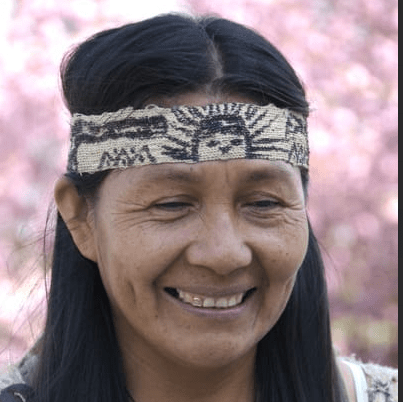
Judge for the Indigenous Knowledge & Wisdom Award.
Gloria Ushigua was born 1961, in the Sapara territory of the Ecuadorian Amazon, to Sapara parents, Blas Ushigua and Mukutsawa Marialuisa Santi.
In 1992, Gloria participated in the historic Allpamanta, Kawsaymanta, Jatarishun march, a movement for Amazonian life and territorial rights. Tragically, her first son Roberto was killed during this period, a loss she later uncovered through a spiritual Ayahuasca ceremony.
In 2005, she defended a small group of women from violence and was honoured for her bravery. Two years later, she was elected president at the Masaramu congress, where she successfully unified two opposing organisations. Gloria then went on to organised the Sapara Women’s Organization “Ashiniawka” to defend Sapara territory. Ashiniawka received an Indigenous Knowledge and Wisdom Award as part of Spring Prize 2023.
She also fought against oil exploitation in the Amazon. Working with Amazon Watch and activists internationally, she successfully prevented the sale of oil blocks 79 and 883 to Chinese company Andes Petroleum.
Despite being denied leadership recognition by the Ecuadorian government, Gloria continued her work and was recognised as a global leader in climate change by the state of California. Today, she continues her relentless fight for the protection of her people’s territory and rights.
Jessielee Pearce
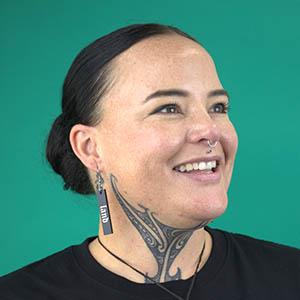
Judge for the Indigenous Knowledge & Wisdom Award.
Jessielee is a proud Māori wahine, a māma, an environmental and indigenous land rights activist. She is a member of several activist communities and movements focused on social, environmental and upholding indigenous land rights.
Raised with indigenous mara kai (vegetable gardening) practices, permaculture has been intrinsically woven into her way of life. Following a lunar/solar structure is rooted in Indigenous knowledge and is a way of connecting with the Te taiao (the environment) and ensuring that we have something to hand on to our future generations.
Jessielee has worked for LUSH Aotearoa (New Zealand) for a decade & is the Advocacy and Activism Executive for Lush Australasia. In this time she has worked alongside many different regenerative organisations that focus specifically on permaculture, education and restorative practices.
Outside of Lush Jessielee works for Atawhai a rangatahi (youth) Mental health and wellbeing programme aligned to kaupapa Māori principles, honouring the tuakiri (identity) of the indigenous rangatahi of Aotearoa and how a Te Ao Māori view supports rangatahi wellbeing.
With a fair understanding of permaculture I dont always look at it from a singular lense of gardening. It is much broader than that, though social and economic impact is really where permaculture has its true potential.
Kayode Olafimihan

Judge for the Permaculture Magazine Award.
Kayode Olafimihan is the chair of the London Permaculture Network.
He organises the annual London Permaculture Festival, founded Permablitz London and has established a permaculture LAND project at Cecil Sharp House, headquarters of the English Folk Dance and Song Society in London.
Maia Raymond

Judge for the Permaculture Magazine Award.
Growing up in a permaculture ecovillage, Maia Raymond has been engaged in the permaculture world since she could talk.
As an accredited permaculture designer and teacher and Warm Data Host, Maia is the co-founder of Permayouth, which has been engaging young people in [pr]activism around the world for five years.
She is currently studying a Bachelor of Politics, Philosophy and Economics at the Australian National University – exploring how we can interact with our societies in an ecologically and culturally integrated way.
Maria Paez
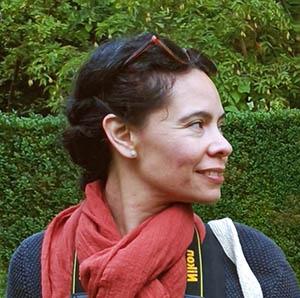
Judge for the Permaculture Magazine Award.
Maria Paez is the International Coordinator at the Permaculture Association Britain (PAB), where she connects with global permaculture leaders to understand their needs and aspirations.
Her work involves providing tailored responses to permaculture projects, practitioners and enthusiasts who contact PAB seeking support. This includes learning about diverse realities and challenges faced in various parts of the world, with a current focus on the Global South, where the majority of requests originate. Maria is developing a permaculture directory and a global strategic map in collaboration with the CoLab which will enhance the visibility of the global movement.
She has recently launched an International Permaculture Survey to explore opportunities and challenges within the movement, offering a snapshot of trends and insights. This valuable data will help national and local organisations to pinpoint their own priorities while also identifying potential partnerships and knowledge-sharing opportunities.
Mariya Turner
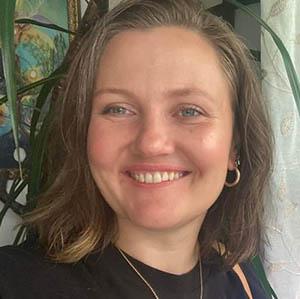
Lush staff judge for the Spring Prize Awards.
Mariya Turner (she/her) is a first-generation immigrant from Kyiv, Ukraine, who has lived in Toronto for over 20 years. As an activist, she is dedicated to dismantling systems of oppression, environmental racism, and land dispossession affecting Indigenous, Métis, and Inuit communities, while honouring their vibrant cultures and resilience.
Many summers spent on the land nurtured a deep connection to nature and her place within it. Mariya earned an Honours Degree in Sociology and actively collaborated with garden groups and grassroots organisations. She further studied ancestral and Indigenous plant teachings and herbalism.
For seven years, she has engaged LUSH staff with community and charitable initiatives, leading the donations program, which prioritises Indigenous and marginalised communities. She also served on a grant-making panel for Animal Welfare, distributing nearly $400,000 prioritising keystone species and advocacy grassroots organisations.
Rooted in radical generosity and mutual aid, Mariya believes community organising is essential for fostering positive change and thriving ecosystems.
Million Belay
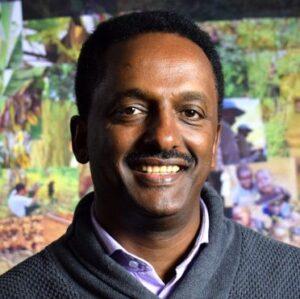
Judge for the Spring Prize Awards.
Million Belay has worked for over two decades on issues relating to inter-generational learning of bio-cultural diversity, sustainable agriculture, the right of local communities to seed and food sovereignty.
He currently coordinates the Alliance for Food Sovereignty in Africa – a network of major networks in Africa – and is a member of the International Panel of Experts on Sustainable Food Systems (IPES-Food). Million is a founder of ‘MELCA – Ethiopia’, an NGO working on issues of agroecology, inter-generational learning, advocacy and livelihood improvement of local and indigenous peoples.
Million’s main interest is now advocacy around food sovereignty, learning among generations, knowledge dialogues and the use of participatory mapping for social learning, identity building and mobilization of memory for resilience.
He has a PhD in environmental learning, a MsC in tourism and conservation, and BsC in Biology.
Morag Gamble
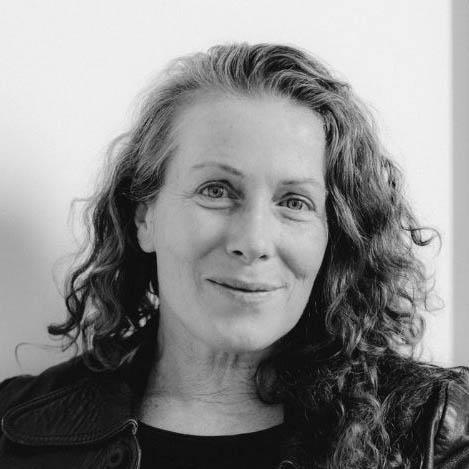
Judge for the Permaculture Magazine Award.
Morag Gamble is an award-winning global permaculture educator, ambassador, speaker, YouTuber, podcaster, writer, mentor, and trust-based philanthropist.
She is the Founder of the Permaculture Education Institute, curates the Our Permaculture Life blog and YouTube, leads the Ethos Foundation permaculture charity, and hosts the Sense-Making in a Changing World Podcast , plus monthly Permaculture Film Club and Permaculture Masterclass series.
Morag also mentors Permayouth , the Ethos Fellowship (university without walls) and enjoys life in her ecovillage home on Gubbi Gubbi country in Australia.
Pawana Crody

Judge for the Indigenous Knowledge & Wisdom Award.
Pawana Crody Cacique Pajé Pawana is an indigenous leader of the Kariri Xocó Indigenous Territory of Porto Real do Colégio, Alagoas, Brazil, in the lower São Francisco River (called Opará by the indigenous people), where around 4,000 indigenous people live.
He promotes the culture of his ethnicity and leads the group Sabuká Kariri-Xocó, which uses Toré and sacred songs as a source of aggregation, rescue and ancestral healing.
Leading the process of retaking their lands, he has also carried out important work as director of the Sabuká Kariri-Xocó Indigenous Association and leader of the Sabuká Kariri-Xocó Cultural Centre.
He is the zealous father of 4 curumins (children), of various ages, who live alongside his struggle and work on a daily basis.
Precious Phiri

Judge for the Spring Prize Awards and Permaculture Magazine Award
Precious Phiri is a training and development specialist in regenerative agriculture issues, an educator of Holistic management and a seasoned community organizer from Zimbabwe. She is a founder of EarthWisdom and IGugu Trust in Zimbabwe where she continues to inspire change.
She recently co-authored a miniguide book on how to create whole landscapes and whole communities using regenerative agriculture. This book will be used in the agroecology training series in Southern Africa through a regional partner; Seed and Knowledge Initiative.
Precious is a steering committee member and African Coordinator for Regeneration International. Her work currently focuses on training, network and awareness building on regenerative agriculture and its role in rejuvenating soils, reversing climate change, rebuilding communities and replenishing the fast dilapidating wealth of society values. She is also involved in inspiring policy change in the African continent through regional networks.
We are in the era of regeneration rising, and now more than ever do we need enabling platforms that will make this incredible vision soar. LUSH Spring Prize is one of the winds beneath the great wings of the regeneration movement globally
Rachel Steele
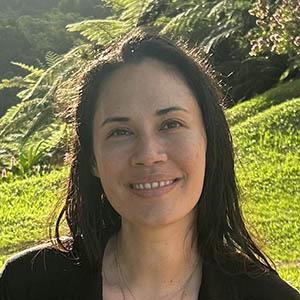
Judge for the Indigenous Knowledge & Wisdom Award.
Rachel is a child of Moana Nui living in Nuku’alofa, Tonga. As the daughter of Tongan and Scottish Australian parents, curiosity always helped her in harmonising spaces between worldviews. She holds profound respect for the natural systems that connect all life, and the vision of those protecting reciprocal knowledge and food systems.
She leads a community-driven housing project in Tonga that centres traditional knowledge to discern new partnerships and pathways towards climate and cultural resilience. During the Covid-19 pandemic, she facilitated an online space for Tongan diaspora to connect through lea faka-Tonga (the Tongan language).
Rachel works as communications lead at Regenerosity, an organisation partnering with grassroots leaders and organisations to resource place-based impact, connect networks, and inspire movements that protect and regenerate bio-cultural diversity globally.
Rozie Apps

Judge for the Spring Prize Awards and Permaculture Magazine Award.
Rozie Apps is the Publishing Director and Assistant Editor at Permaculture magazine and Permanent Publications.
She is passionate about local food and until recently, ran a community garden that supplied weekly veg boxes.
She hopes to one day see community-led farms and market gardens in all towns, cities and villages, where people and planet can thrive.
Ruth Andrade

judge for the Indigenous Knowledge & Wisdom Award.
Ruth started working for Lush in 2004 and soon became the head of environment at Lush, inspiring many environmental initiatives during that time. After a long hiatus, Ruth is now back to mainly work on three aims: lead brand strategy on regenerative impact, support organisational development based on living systems and help evolve our charitable giving strategies. She is passionate about how to transform business into a force of regeneration and to leverage the power of a global brand to do good.
Ruth has a masters in Advanced Environmental and Energy Studies. She is a Trustee and co-founder of Re.Alliance, a collective of practitioners bringing regenerative design to the humanitarian sector, a co-creator of Regenerosity, an initiative for finding, funding and learning from the planet’s most regenerative projects.
Sarah Queblatin

Judge for the Spring Prize Awards.
Sarah Queblatin is a regenerative solutions designer – weaving experiences in environmental education, cultural heritage, peacebuilding, and humanitarian assistance.
Her life-long practice is in restoring and re-storying narratives of place and belonging through ecosystem restoration and leadership.
As part of this work she formed Green Releaf Initiative to support community leaders in response and in prevention of more disasters and displacement using permaculture design in the Philippines.
She co-designed REGEN NATIONS, a design lab on regeneration in Asia and the Pacific with the Global Ecovillage Network.
Sarah also crafted a proposal for Principle 0 – to formally acknowledge traditional ecological knowledge in permaculture.
She is a member of Re-Alliance and co-founder of Permaculture for Refugees.
Keeping to her path as a creative, she also founded Living Story Landscapes which harnesses cultural memory and imagination in climate and conflict vulnerable communities.
Simone De Vivo

Lush customer judge for the Spring Prize Awards.
Simone De Vivo is an Italian-born, Sweden-based designer who believes in design as a tool for positive social change. He focuses on creating products, services, and systems that are accessible, ethical, and inclusive of human complexity and diversity. He values co-designing with stakeholders, ensuring their needs and perspectives are fully integrated for more positively impactful solutions.
Simone is also active as Communications and PR Manager, and Food Designer for The Hungry Collective, a multicultural design collective advocating for sustainable change in food systems. Initially aimed at students at Linnaeus University, the collective is dedicated to promoting regenerative food practices through community events that emphasise seasonality, locality and cultural knowledge.
A key collaboration for The Hungry Collective was its participation in 2023’s Musikhjälpen, a Swedish annual charity broadcast that raises funds for global humanitarian causes. This provided a platform for the collective to share its approach to sustainable food design and regenerative food practices during an interview on Swedish television.
Simone graduated with a BFA in Design + Change from Linnaeus University, Sweden, and is currently pursuing a Master’s degree in Embedded Design at the University of Gothenburg.
Tomás de Lara

Judge for the Spring Prize Awards.
Tomás de Lara is the co-founder and co-lead at Ciudades+B / Cities CAN B – an international movement of citizens committed to the Sustainable Development Goals.
He is a board member of Sistema B Brasil (B Corps Movement); an advisory board member of CEBDS (Brazilian Business Council For Sustainable Development); a board member and chief sustainability officer at Estância do Chalé (Agribusiness located in the south of Brazil); and a co-founding curator of Rio de Janeiro and Porto Alegre’s Hubs of Global Shapers Community from the World Economic Forum.
Tomás is a Responsible Leader at BMW Foundation global network and a member of Well Being Economy Alliance (WE All).
He is a specialist on collaborative, circular and sustainable economies, and an invited speaker and teacher at many universities and schools on the topic of sustainable development.